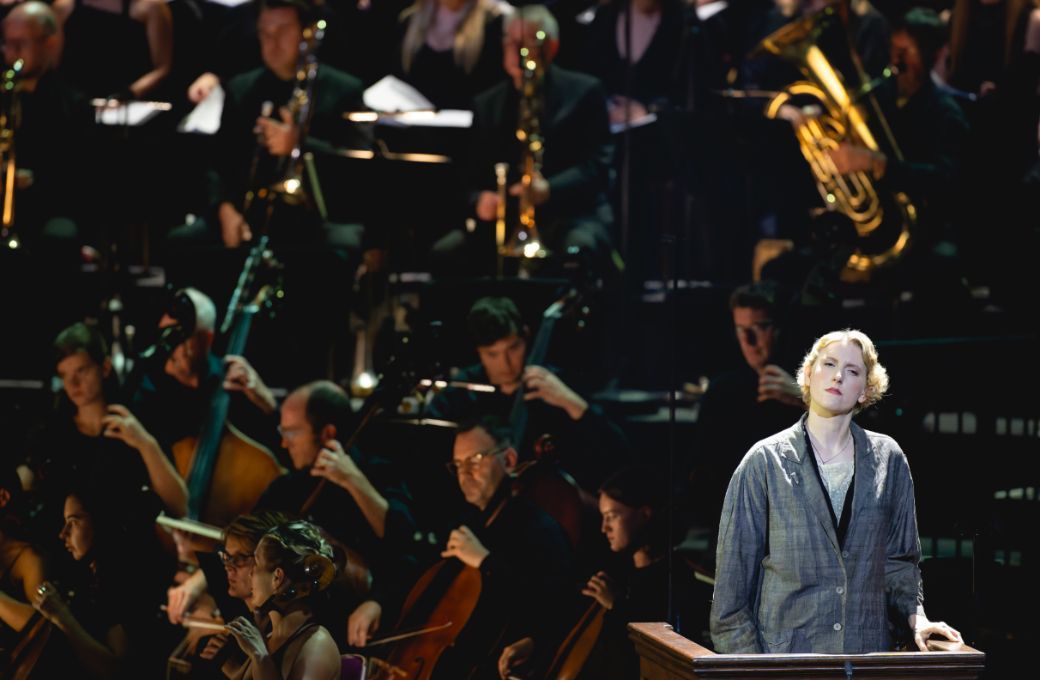Few operas about humanity’s underbelly avoid a genteel streak, whether in the elegance of their libretto or the sophistication of their score. Some contemporary composers – Turnage and Venables spring to mind – are freer spirits than their forebears, among whom not even Alban Berg, who embraced social effluence in his operas, completely avoided holding his nose. Yet no one, then or now, can outdo Dmitri Shostakovich for ugliness and shocks. His magnum opus, Lady Macbeth of Mtsensk, is an abrasive study of misogyny, bullying and multiple murders triggered by acts of injustice towards its protagonist, Katerina Izmailova. It rather upset Stalin, you may remember, and led the Soviet composer into some dark times of his own.

The BBC Philharmonic Orchestra paraded its full complement and annexed a contingent of brass from English National Opera in order to give the work a vast, Mahler-scale performance under John Storgårds. The result had a magnificence that seared the senses through its cynicism and ferocity. David Pountney’s vernacular translation, also for ENO originally and almost 40 years old, had a stark immediacy that crashed against the composer’s hell-for-leather orchestrations like an intersection of tectonic plates. In the players’ midst, quite literally, a vivid semi-staging by Ruth Knight allowed the opera’s plot to cut through with devastating power. I’ve never been so overwhelmed by it. Lady Macbeth is not an opera that seeks our affection – what beauties there are tend to be ironic incongruities that underpin scenes of cruelty – but it remains a thing of wonder.
The opera’s themes are bad sex, corrupt values and despicable behaviour from everyone in sight, from Katerina’s abject family to the venal city police. Sin begets sin until even our heroine is culpable. Amanda Majeski gave a performance of harrowing depth and power in the title role, marred only by the occasional elision to smooth over Pountney’s sibilants and plosives.
The American soprano was matched by her fellow principals, tenors John Findon as her flaccid husband Zinovy and Nicky Spence as Sergey, the rough-hewn man who replaces him in Katerina’s bed, with the great bass Brindley Sherratt as the bullying patriarch Boris, a man doomed to be felled by his daughter-in-law’s recipe for just two ingredients, mushrooms and rat poison. Cameos from Sir Willard White as the Old Convict and mezzo-soprano Niamh O’Sullivan as Sonyetka, the stocking-filching scene-stealer in the final act, held sway amid a flawless supporting cast.
How can such an epic undertaking have been achieved in an Albert Hall that hasn’t known a free day in weeks? Especially on such a massive yet intricate scale? Who knows. Knight’s complex semi-staging was impeccably rendered by the musicians, with the ENO Chorus and BBC Singers (superbly drilled by Matthew Quinn) adding robust, three-dimensional drama and a clutch of comprimario solos. Indeed, only one oversight tarnished this brilliant Prom’s success: the sensational lighting, which dazzled the Royal Albert Hall audience with its theatrical spectacle and scale, was disgracefully left uncredited. On a night of traumas that was the one that shocked me most.


